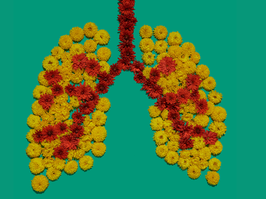what was respiratory rehab like?
when i went into rehab, it was february 2016. and in those days, believe it or not, they had in-patient beds. i was an in-patient for six weeks, and i was an outpatient for another six to eight weeks.
in the mornings we went to rehab, in the afternoon we went to classes. the classes were education on mental health, mindfulness, and how to use puffers. they taught us about our disease. we talked about physiotherapists, and there was all kinds of education about copd. it was wonderful.
how was the transition back home?
everything changed. i kind of felt it was no longer my house. whoever wanted to do whatever, you go do it. for the first time in my life, i was taking care of myself. i hadn’t ever had the focus on me in my life, and i was really enjoying it. my job was to go out and walk around the block, come back, have a rest, and get up and do it again. it was interesting.
i eventually went back to work and [a week later] i had another sudden cardiac arrest; i was sitting at the same place in the kitchen with my husband and my daughter. [this time] i was intubated, in a coma, for a couple of days.
now i’ve had two sudden cardiac arrests and [the doctors] would not let me go home. i ended up in the hospital for six weeks. they sent me for all kinds of tests, and they could not find a reason why it happened. my family was frantic.
 10 minute read
10 minute read








